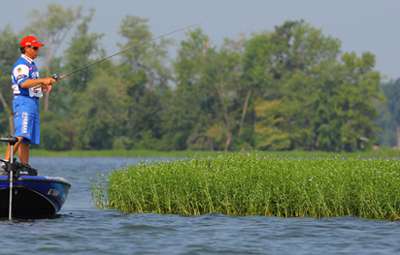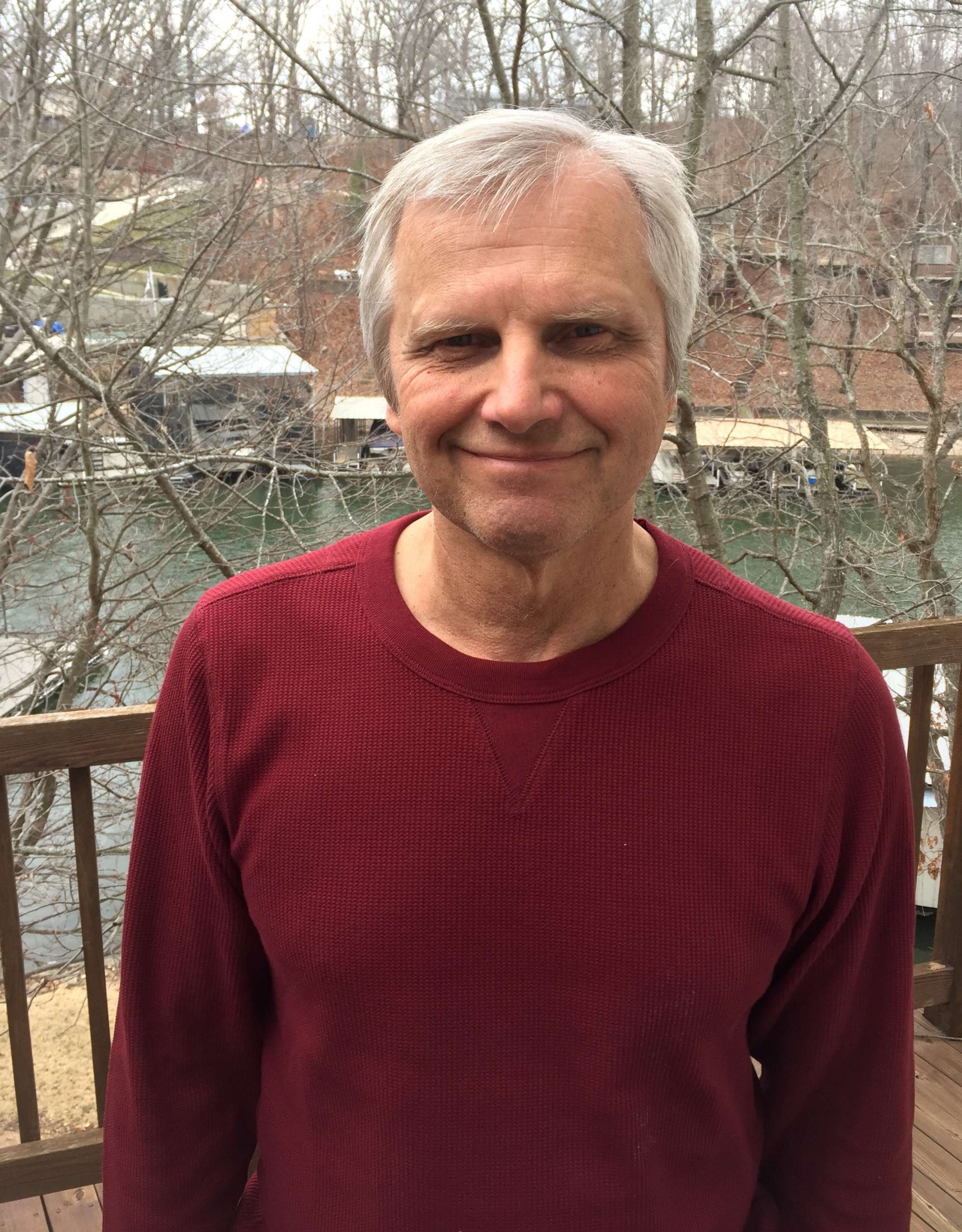
Before most of us woke up Monday morning to get ready for work, Dean Rojas was already on his job site.
The Arizona pro got up at 4 a.m., downed a banana and put his boat in Kentucky Lake at about 5:15 a.m. to start a long day of practice for the Bassmaster Elite Series Tennessee Triumph.
When most of us were back home from work and sitting down for dinner, Rojas was working overtime, still trying to put together a game plan for the upcoming Elite Series event. "It wasn't an eight-hour shift," said Rojas of his day on the water that ran about 13 1/2 hours.
Long practice days are the norm for Elite Series pros since they have to find enough fish to keep them in contention for four days. So practicing for hours before and after what would be the tournament time frame (6 a.m. to 3:30 p.m.) is still beneficial to Rojas even though he can't fish those hours during the competition days. "I just get to cover more spots then," Rojas says. "The more spots you have, the more options you have for tournament time."
The three-time BASS winner never pre-fished for this week's event, but he did his homework of map studying and reading articles and other information he has gathered over the years to help him develop a practice strategy for the week.
Each practice day he tried to cover a different section of the lake, so on Monday he keyed on the northern part of Kentucky Lake and on Tuesday he planned to fish the mid-lake area. "I pretty much have a game plan before I go into it," Rojas says. "I try to do my homework and be prepared before the practice starts, so I will have a good idea of where I need to go and what I need to do."
His long hours of practice on Monday included trying 25 to 30 spots while covering about 30 miles of the lake. The amount of time he spent at each spot varied from a couple of casts to about a half hour. "I tried to cover about as much water as I could today to put together a game plan for this week," he says.
Rojas started his practice day with 12 different lures tied on the rods on his deck. "I am going to cull a few of those, and then will cull some more tomorrow so I will be ready to go for game day on Wednesday," says Rojas. "If I am really on the fish, ideally I will just have one rod on the deck (when the tournament starts). But I will have five or six backups waiting in the rod box."
The touring pro estimated he got about 25 bites on Monday and hooked about half of those fish. Whereas some of his fellow competitors try to avoid hooking fish in practice, Rojas opts to catch some. "I don't mind sticking them," he says. You have to see them because you have to know what you caught before you can put your game plan on."
Rojas got off the water around 7 p.m. on Monday and prepared his boat for the next day, but he didn't mess with his tackle. "The stuff I used today will still be good enough for tomorrow," he says. The rest of his evening was spent eating dinner and taking a shower before going to bed slightly after 9 p.m. "I want to make sure I have enough sleep," he says. "By the end of these summer tournaments you need to be strong, otherwise fatigue will catch up with you."
The next morning he would be back on the job before dawn for another long practice day. Many of us would gladly trade our 9-to-5 hours at the office for his time on the water — at least on the days when the fish are biting like crazy.





